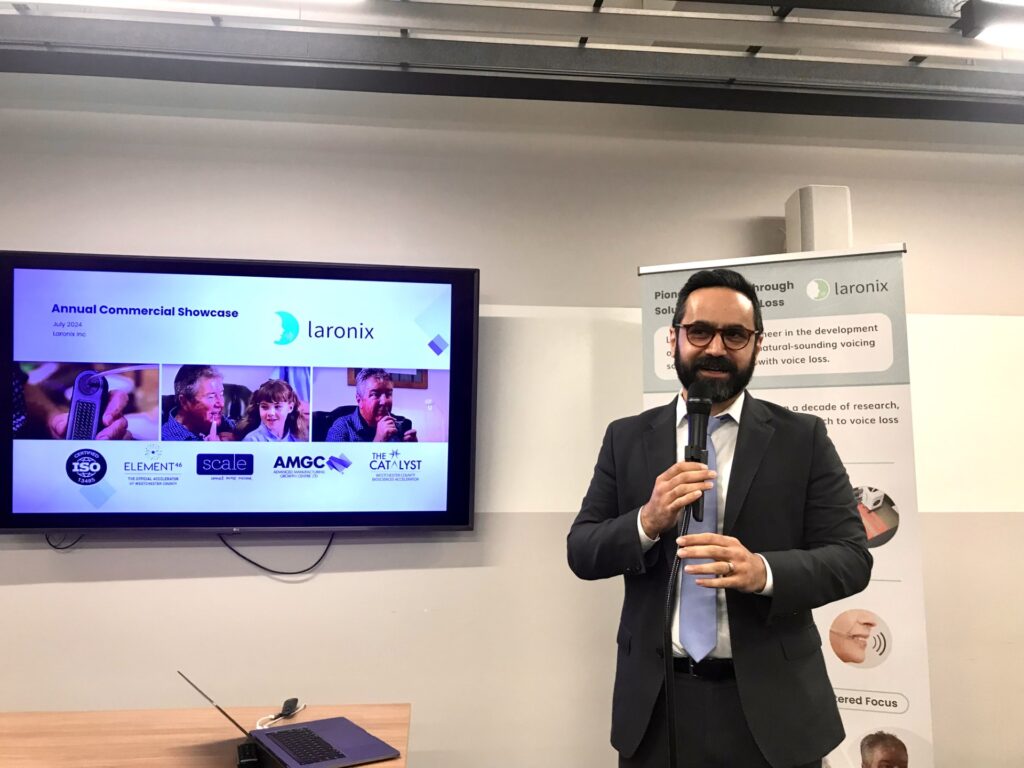
Laronix co-founder Mousa Ahmadi discusses his company’s MIRA Voice device on July 24, 2024 in White Plains. Photo courtesy of the Business Council of Westchester.
Laronix held a showcase Wednesday to demonstrate its MIRA Voice device that uses artificial intelligence to help people with spinal cord injuries, cerebral palsy and other conditions regain the ability to speak clearly.
The event at Serendipity Labs in White Plains welcomed medical professionals and others curious about MIRA Voice and the Australia-based Laronix’s rollout of the technology in the United States.
“Our story started with patients who were experiencing (voice loss from laryngectomies) reaching out to us and saying, ‘We know that you have the expertise to create a new class of technology for us,’” Laronix co-founder Mousa Ahmadi told attendees. “Over time we decided to …start innovating and create something for this group.”
The MIRA Voice device uses a pressure sensing module that rests in a user’s throat to monitor respiration. Like the vocal folds, these readings drive an AI-based software model of vocal folds which produces the user’s voice.
As part of Laronix’s effort to expand the use of its MIRA Voice technology, the company has begun a product test with the Burke Neurological Institute in White Plains, a collaboration facilitated by the Business Council of Westchester’s Westchester Innovation Network. The product test will focus on patients with cerebral palsy or spinal cord injuries.
In the past 18 months, Laronix has worked with more than 30 hospitals across the country. The company is also shipping trial kits to clinicians to encourage them to try the product on their patients, with positive results so far.
“That wow moment is what clinicians and patients love,” Ahmadi said of patients’ discovery that they can speak again.
Laronix expects to begin a high-volume product launch in September and Ahmadi told the event attendees that it expects to quickly grow its U.S. business to 42,000 patients by 2030, with projected annual revenues of $101 million. Ahmadi said outreach to key opinion leaders like the staff at the Burke Neurological Institute is part of the strategy to foster a growing embrace of MIRA Voice.





